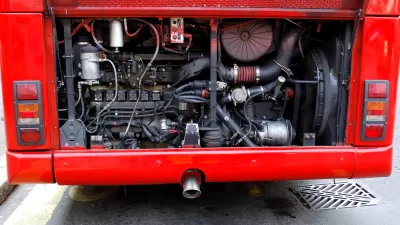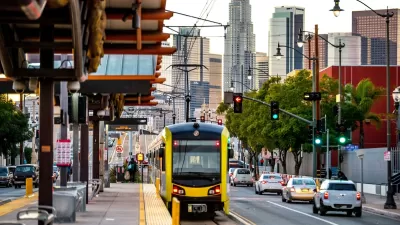While demand has increased, the weakening economy is drying up operating revenues for municipal public transit services, and the billions of dollars promised in the federal stimulus package - intended for capital projects - won't help either.
"Transit systems across the country are raising fares and cutting service even when demand is up with record numbers of riders last year, many of whom fled $4-a-gallon gas prices and stop-and-go traffic for seats on buses and trains.
Their problem is that fare-box revenue accounts for only a fifth to a half of the operating revenue of most transit systems - and the sputtering economy has eroded the state and local tax collections that the systems depend on to keep running.
The billions of dollars that Congress plans to spend on mass transit as part of the stimulus bill will also do little to help these systems with their current problems. That is because the new federal money - $12 billion was included in the version passed last week by the House, while the Senate originally proposed less - is devoted to big capital projects, like buying train cars and buses and building or repairing tracks and stations. The nation's transit woes threaten to deal another blow to the weak economy, keeping some workers from jobs they commute. And while the economic stimulus package being considered on Capitol Hill includes tax cuts intended to put more spending money in people's pockets, fare increases promise to take a big bite for many commuters."
FULL STORY: Rider Paradox: Surge in Mass, Drop in Transit

Alabama: Trump Terminates Settlements for Black Communities Harmed By Raw Sewage
Trump deemed the landmark civil rights agreement “illegal DEI and environmental justice policy.”

Planetizen Federal Action Tracker
A weekly monitor of how Trump’s orders and actions are impacting planners and planning in America.

The 120 Year Old Tiny Home Villages That Sheltered San Francisco’s Earthquake Refugees
More than a century ago, San Francisco mobilized to house thousands of residents displaced by the 1906 earthquake. Could their strategy offer a model for the present?

Opinion: California’s SB 79 Would Improve Housing Affordability and Transit Access
A proposed bill would legalize transit-oriented development statewide.

Record Temperatures Prompt Push for Environmental Justice Bills
Nevada legislators are proposing laws that would mandate heat mitigation measures to protect residents from the impacts of extreme heat.

Downtown Pittsburgh Set to Gain 1,300 New Housing Units
Pittsburgh’s office buildings, many of which date back to the early 20th century, are prime candidates for conversion to housing.
Urban Design for Planners 1: Software Tools
This six-course series explores essential urban design concepts using open source software and equips planners with the tools they need to participate fully in the urban design process.
Planning for Universal Design
Learn the tools for implementing Universal Design in planning regulations.
Clanton & Associates, Inc.
Jessamine County Fiscal Court
Institute for Housing and Urban Development Studies (IHS)
City of Grandview
Harvard GSD Executive Education
Toledo-Lucas County Plan Commissions
Salt Lake City
NYU Wagner Graduate School of Public Service





























